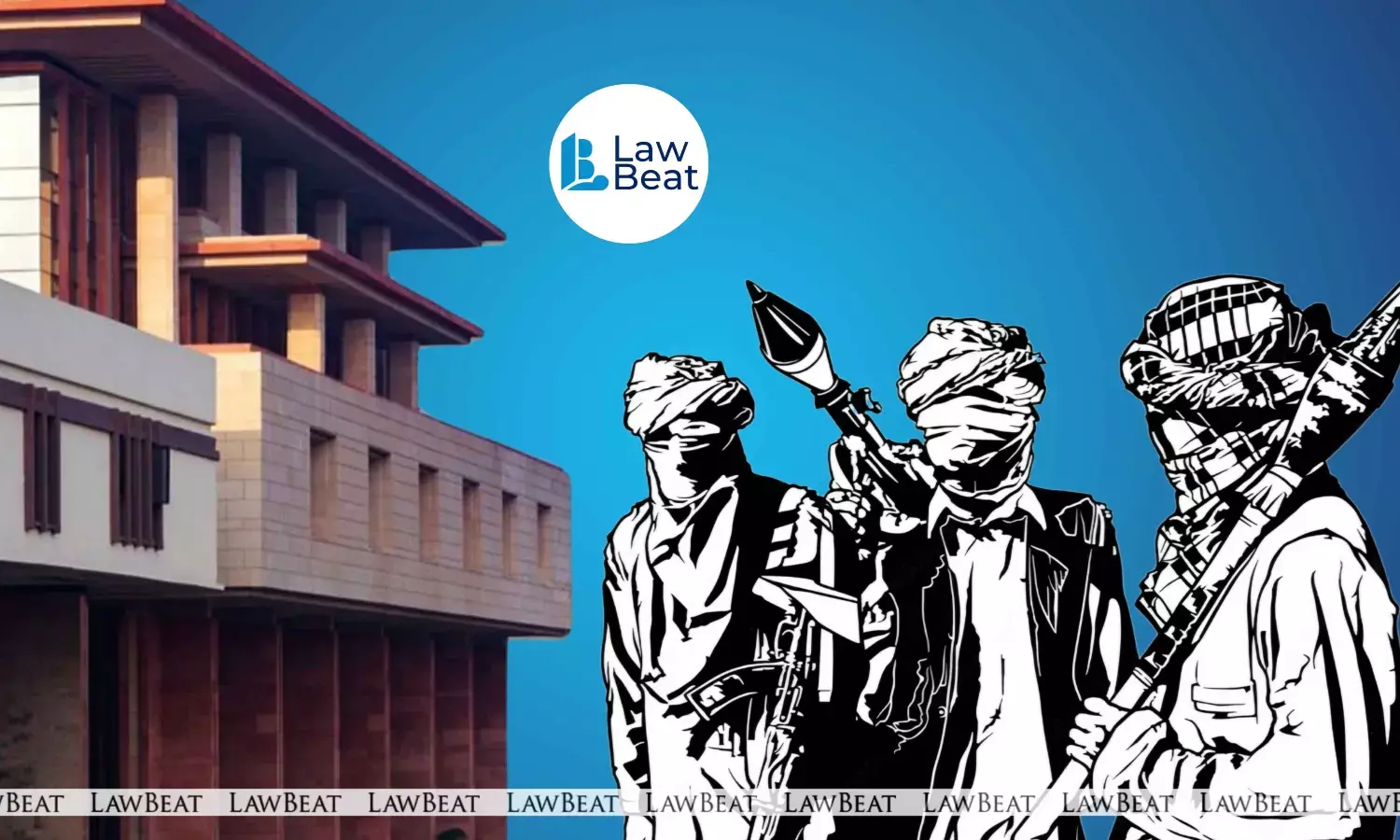Sharing Radical Content Online Can Attract UAPA Charges: Delhi HC Denies Bail to Terror Accused

The Delhi High Court has recently held that sharing radical information or ideology through social media or any digital platform, even in the absence of any physical act, can attract charges under the Unlawful Activities (Prevention) Act (UAPA).
In doing so, a division bench comprising Justice Subramonium Prasad and Justice Harish Vaidyanathan Shankar denied bail to Arsalan Feroze Ahenger, an alleged operative of “The Resistance Front,” a group banned as a terrorist organisation under the UAPA.
“Section 18 of the UAPA is framed in such a broader way that even the usage of social media or any digital activity for the purpose of disseminating radical information and ideology falls within its ambit, and it is not necessary that the same is to be a physical activity,” the Court held.
According to Section 18, any person who directly or knowingly incites the commission of a terrorist act or any act preparatory to the commission of a terrorist act is liable to be punished under the provision.
Finding sufficient material against the accused, the bench said, “This Court is of the opinion that the material on record indicates that the Appellant has abetted and incited the commission of terrorist act in the country which is punishable under Section 18 of the UAPA.”
The judges further noted that the appellant, being in a position of influence, could tamper with evidence and posed a flight risk.
The High Court was dealing with Ahenger’s appeal against a trial court order that had dismissed his bail application. The appellant had been charged with offences punishable under Sections 120-B, 121, and 122 of the IPC and Sections 13, 17, 18, 18B, 38, and 39 of the UAPA.
The National Investigation Agency (NIA) has alleged that following the abrogation of Article 370 of the Constitution, various terrorist organisations such as Lashkar-e-Toiba (LeT) and The Resistance Front (TRF) conspired to carry out targeted attacks on minorities, security personnel, political leaders, and other key individuals.
These conspiracies were reportedly aimed at creating unrest, fear, and instability in the Kashmir region as well as other parts of the country, with some of them already executed. It was revealed that TRF was not only involved in attacks but also actively radicalised and recruited local youth to spread provocative narratives and support militant activities.
The agency further alleged that the internet was being used extensively by TRF members to disseminate radical information and recruit youth. Platforms such as Facebook, WhatsApp, Telegram, Instagram, and Twitter were used to spread false and provocative narratives against the nation and draw local youth toward terrorism.
The present appellant was allegedly associated with one Mehran Yaseen Shalla, who was linked to TRF/LeT and was killed in an encounter on November 24, 2021.
The NIA claimed that Ahenger was active on various social media platforms and had shared radical content. He ran groups like Ansar Gazwat-ul-Hind and Shaikoo Naikoo, created multiple Gmail IDs to spread radical views, and motivated youth to join TRF. He also shared pictures, videos, and audio clips glorifying terrorists and calling for retaliation.
Before the High Court, the NIA supported the Trial Court’s order rejecting bail and added that the material on record shows the active involvement of the appellant in propagating radical content on social media with an intent to compromise national security. The agency argued that the case is covered under the stringent restrictions of Section 43D(5) of the UAPA.
On the other hand, appellant's counsel argued that the trial court had failed to appreciate that there was no material on record indicating the appellant’s membership in TRF. It was further contended that TRF was not listed in Schedule I of the UAPA on the date of the appellant’s arrest, and hence, no case under UAPA could be made out.
Taking note of the submission, the Court observed, “The contention of the Ld. Counsel for the Appellant that unless there are allegations against the Appellant that he has committed a terrorist activity in terms of Section 15 of the UAPA, he cannot be roped in under Section 18 of the UAPA, cannot be accepted. Section 15 defines ‘terrorist act’ and Section 18 sets out the punishment for conspiracy.”
Dismissing the defence arguments, the Court added, “It cannot be said that there is no evidence against the Appellant that he was closely associated with slain terrorist Mehran Yaseen Shalla or that he has actively participated in the terrorist activities himself. Material does indicate that the Appellant was disseminating information for inciting local youths to indulge in activities which will lead to commission of a terrorist act. This is sufficient to bring the Appellant within the ambit of Section 18 of UAPA, thereby satisfying the test of rejection of bail under UAPA.”
"Considering the facts of the present case, this Court is not inclined to grant bail to the Appellant at this juncture,” the Court held.
With these observations, the Court dismissed the appeal.
For Appellants: Mr. Siddharth Satija, Mr. Sowjhanya Shankaran, Mr. Akash Sachan, Ms. Anuka Bachawat, Advocates
For Respondents: Mr. Rajesh Mahajan, SPP with Mr. R.K. Bora, Advocate with DSP Surender Pal.
Case Title: ARSALAN FEROZE AHENGER versus NATIONAL INVESTIGATION AGENCY
Click here to read the judgement
